Results & Side Effects of Isotretoin (Accutane) – 3 Months In!
by Mia M.
Hello, beautiful humans and welcome back to some of the most consistent categories on my website: me battling my skin. Ah yes, the joys of having acne for the last (4? 5? 6?) years of my life. Today, we’re going to be talking about isotretoin, more commonly known as Roaccutane, and how it’s impacted my skin!
**Disclaimer: I’ve linked to a few sources in this post. I’ve done my best to make sure these are from legitimate government websites and official medical studies.**
For those of you who may be new to the game, Roaccutane is basically a last-ditch, hail mary. That may be a tad dramatic – but it’s a really harsh medication you aren’t going to get prescribed lightly. You have to prove your acne is resistant to other treatments (both topical and pharmaceutical), you have to actually see a dermatologist and there’s bloodtests before and during treatment.
I was only prescribed it because my skin has scarring and I’ve tried multiple courses of antibiotics.
In a study done where patients took 20mg daily until they’d consumed 120 mg/kg of body weight, 96.4% of patients acne was cleared after treatment. After a five year follow-up only 7.9% of people had a relapse! – Source
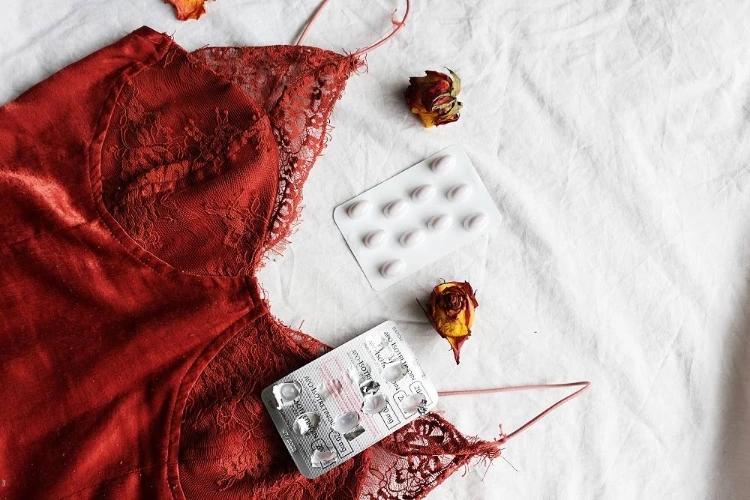
The general consensus with Isotretoin is that it definitely works . . . but the side effects are off-putting enough that you should try everything else first.
My Course
I’m pretty convinced my dermatologist is trying to get loads of money out of me, to be honest, because my course is 12 bloody months. (Kidding, she’s a very nice lady. If you’re in Melbourne, highly recommend Melbourne City Dermatology.) My first two months were on 10mg and for the next four months I’m going to be on 20mg. It’s a pretty low dosage I believe (I see a lot of people on 40mg and 60mg) but it’s working well for me.
Anyways, with that background info about the medication aside, let’s get into the good stuff: the results.
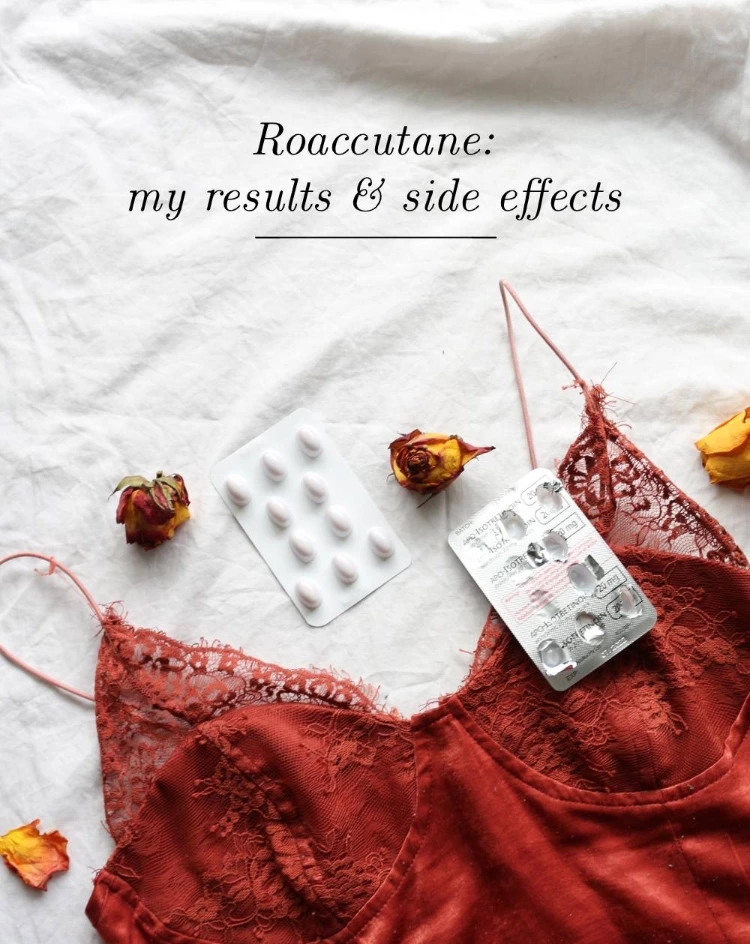
After 3 months of Accutane (10 & 20mg):
Fair warning, I’m 21 now and haven’t been an avid selfie taker for a good few years. These aren’t great pics, sue me.
AFTER 2 MONTHS:
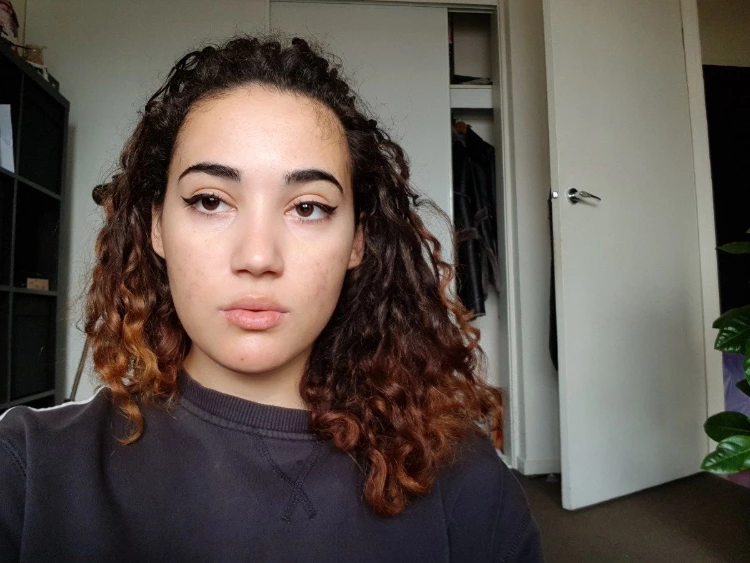
AFTER 3 MONTHS:
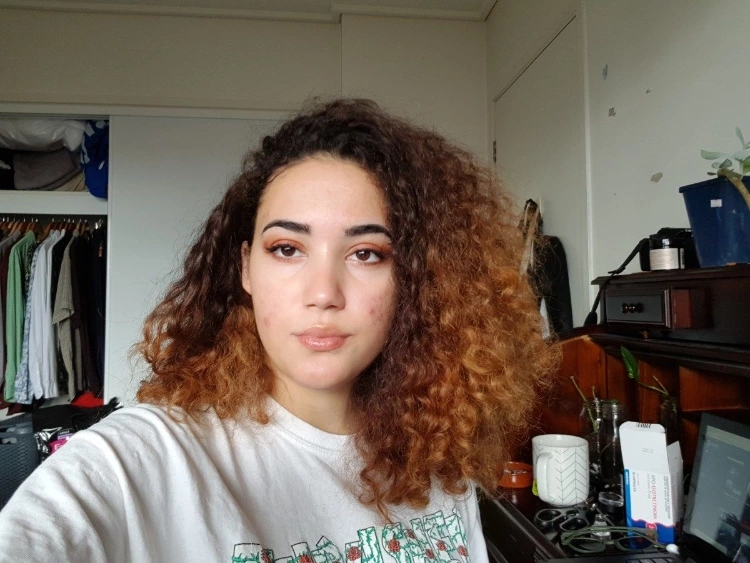
Ugh, I just want to blend my eyeshadow.
Firstly: overall results. My skin is so much clearer. It gets way less oily too, which I think is a large contributor to my acne to begin with. I’ve consistently worn foundation daily for the past two or three years, but since I’ve been taking the medication, my skin’s been good enough to go foundation free!
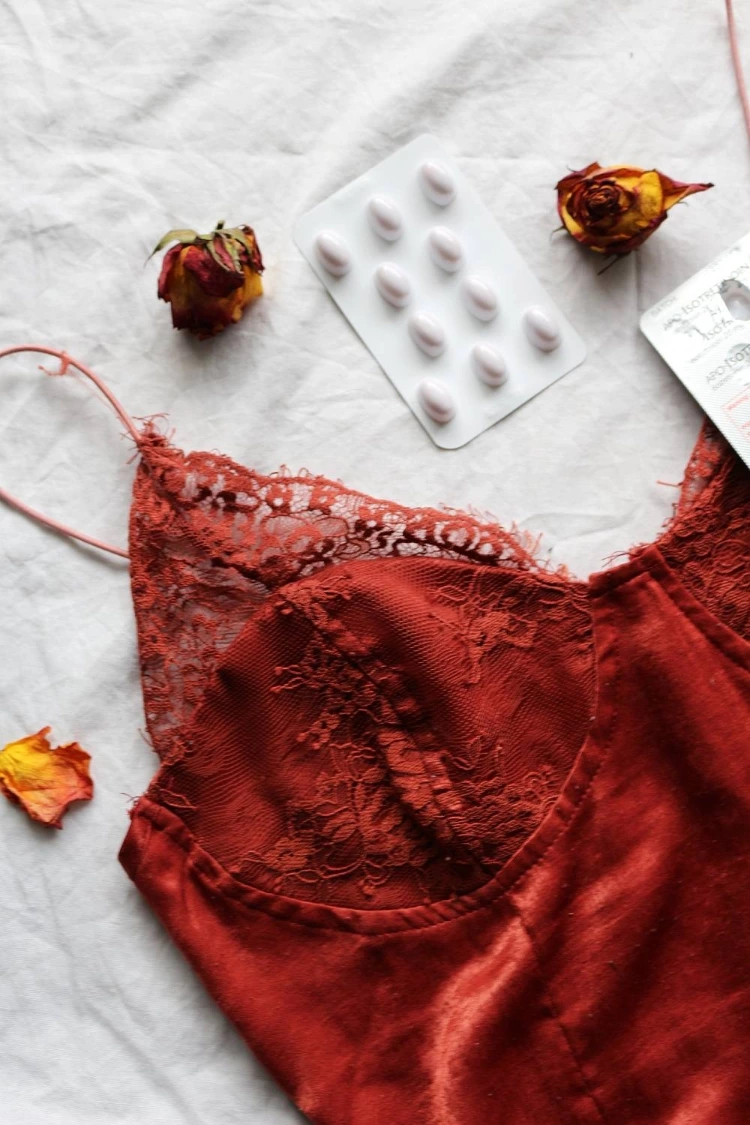
We have recently got a puppy, who loves to walk her muddy body all over my side of the bed. And my favourite monthly visitor has been in town. All of this contributes to the lovely big breakout I’ve had recently that you can see in the second picture – and I thought this would be a good time to share my experience with breakouts etc on the medication.
For me, I feel like my acne has three categories:
Internal – Have I been eating shit? Have I slept enough? Am I hydrated?
External – Is my skincare routine meeting my skin’s needs? Am I cleansing my face enough? Is there fucking mud and grime all over my pillowcase?
And the last . . . just fucking because. The last is the category that just has no reason. It’s just baseline acne that exists because genetics. No dairy free, low sugar diet will purge it. No $100 skincare products will soothe it. It’s just there because it’s there and, fortunately for me, that’s the acne Roaccutane clears up.
For me so far, it’s not been the be-all end-all. I still need to make sure my skin’s getting the skincare it needs; I can’t eat pizza three nights in a row and not get a zit on my chin. However, my skin is now normal skin. In average day-to-day life . . . it’s chill. Which is absolutely insane to me.
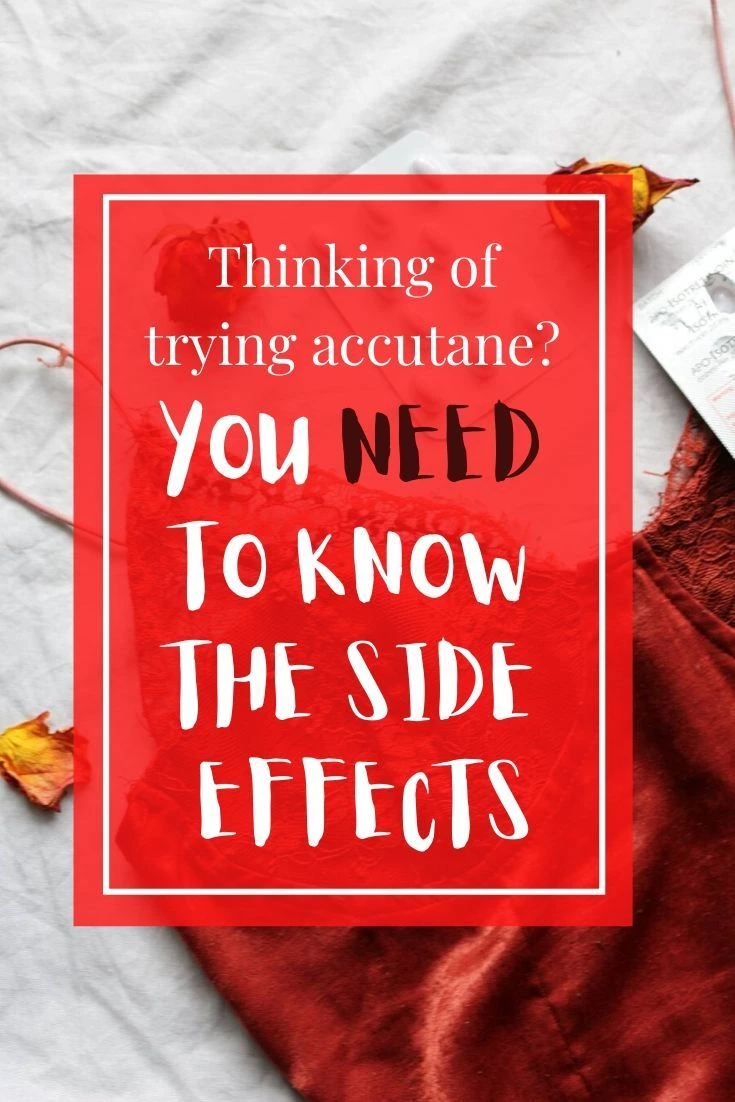
The Side Effects
Okay, so we know it works . . . but what’s the cost?
- Dry skin
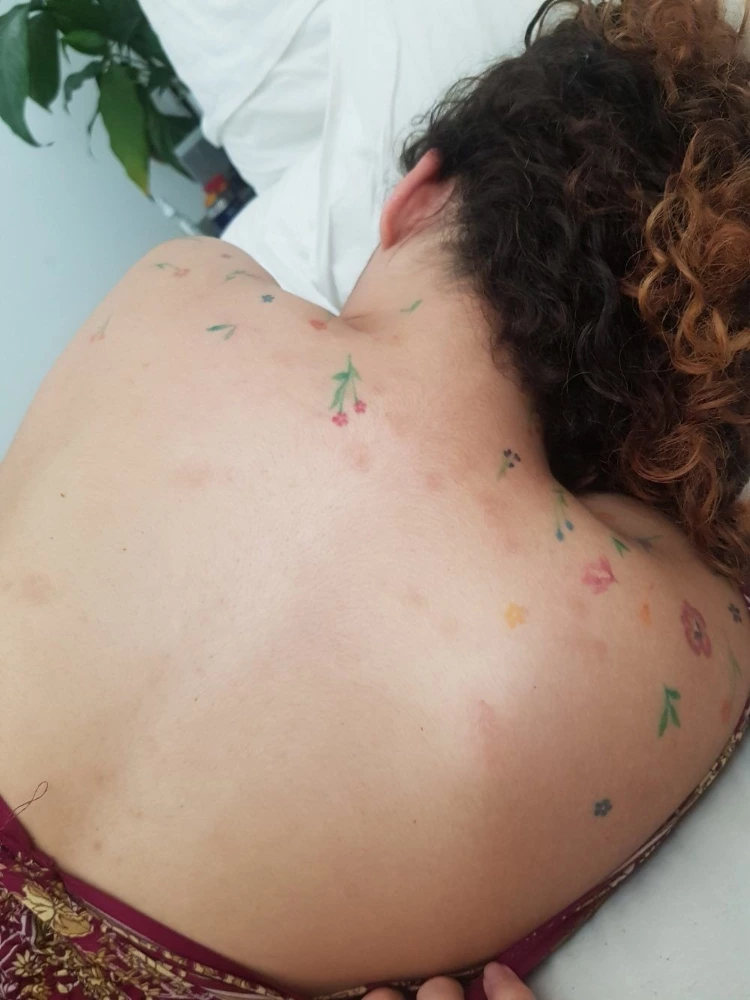
It’s so annoying; my phone camera has massive file sizes and when I convert them down it loses a bit of definition and gets blurred. Hopefully you guys can get the idea anyway.
I keep getting loads of really dry patches the size of fingerprints; you can see them in the image above. At first I thought maybe I was bruising easily (which I also am), but they’re actually dry skin. I get these tiny patches all over my body – they don’t itch, but they are visible.
- Chapped lips
This is my least favourite side effect. My lips are destroyed. They’re constantly chapped to a painful degree – most days I wake up and when I yawn the corners of my mouth bleed. It’s grim and I actually have scarring in the middle of my lips from it.
I’ve always been a religious lip-balm user, but now it’s literally a lifeline. I’ve gone through so many bottles of the stuff it’s insane.
- Worse hangovers/not being able to drink
Roaccutane can affect your liver function; this is one of the reasons you need to get regular blood tests during your course. This also means that you’re meant to drink a very minimal amount while you’re taking it. This isn’t a problem for me – come summer or when my friends are around, I love a good G & T, but I’m not a big mid-week drinker.
That said, my boyfriend had been getting me into red wine – but now even a glass or two can leave me with a raging hangover.
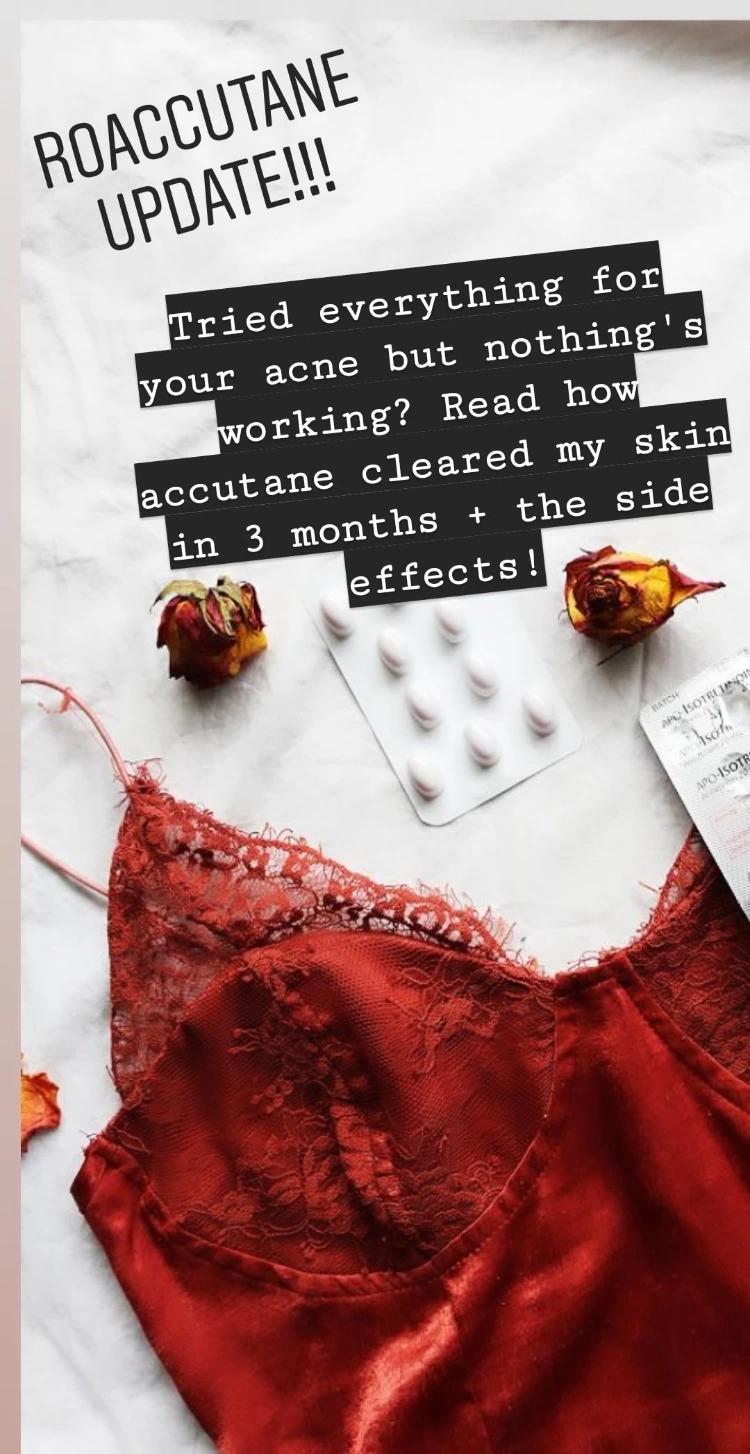
- Eczema on my hands
- My skin’s really thin and brittle
This is one that I’ve really noticed – and a lot of restrictions you’re under on the medication (like no tattoos, no threading or waxing, no piercings) make way more sense. My skin is so fragile.
I put a receipt in my mouth while my hands were full and when my partner went to take the receipt, he ripped a massive chunk of my lip skin out. Which is just as traumatic as it sounds.
My hands get nicks and cuts all the time – I went to scratch my nose the other day and literally gouged it. My boyfriend thought maybe the puppy had nipped me because it was a massive (and relatively deep) cut on my nose. From scratching it. With my own thumb.
And the big question . . . has my mood been affected?
While all of these side effects and the potential of liver damage are pretty heavy . . . I think the main concern about Roaccutane comes from the link to depression and suicide.
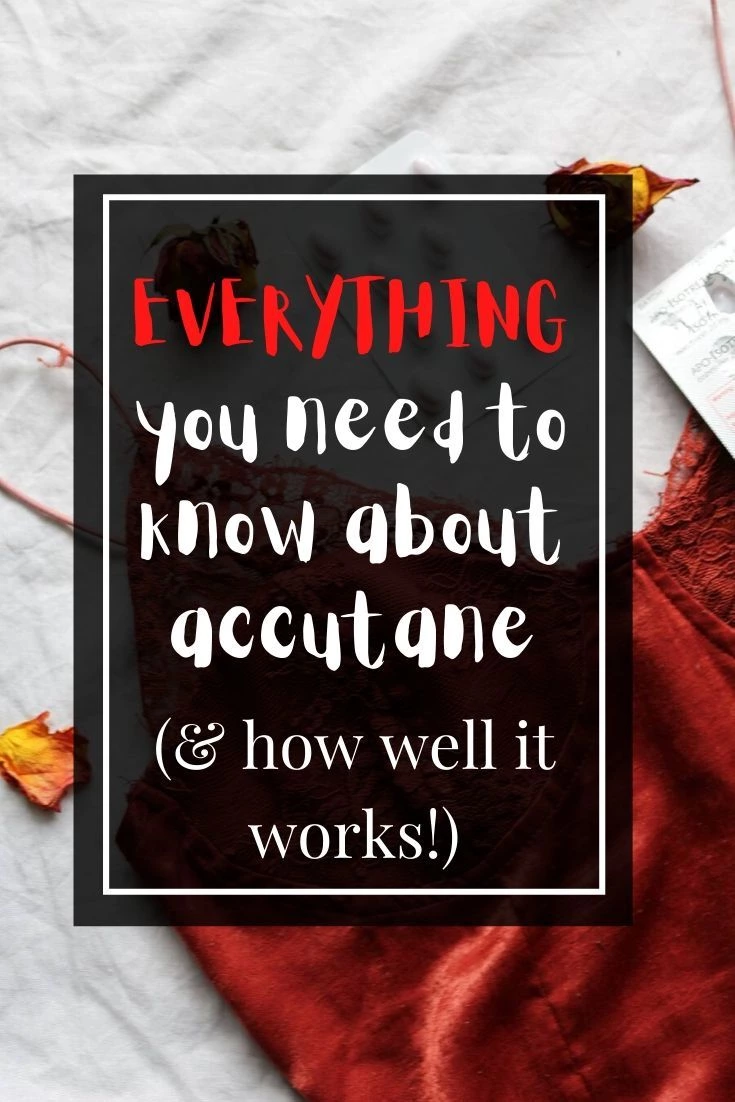
Firstly: there have been studies into this that have found no correlation between Isotretoin and depression. Personally, I think it’s a tricky subject to talk about because people with acne fall into two high risk groups:
- They have acne. Up to half of 12-20 year olds with acne develop social and psychological problems – source. It sucks, but it’s also the truth; acne can make you feel self-conscious and downright miserable.
- They’re teenagers. Dealing with hormones, high school, generally shitty mental health . . . and acne.
The risk for depression, regardless of the medication, is already pretty damn high. Which makes it hard to accurately test whether the medication affects mood or not.
That being said, the dermatologist and pharmacist I go to are both very conscious to check in with me every time I see them. It’s very much part of the treatment to ensure my mood isn’t being affected.
For me, I’ve seen no negative mood effects. If anything, I feel better than I have in years.
And with that, my loves, I’ll leave it here. Sorry this one is a bit longer than normal – I know I have a few followers that also suffer with acne and wanted to make this quite an extensive resource. I highly recommend Roaccutane if you need it. Have any of you tried it? Would you? Let me know your thoughts down below – and drop your Twitter handles because I’m getting back into that!
Peace,
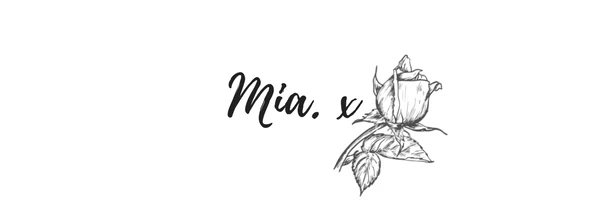
Instagram // Twitter // Bloglovin’ // Youtube // Pinterest
 |
 |
 |
 |

About Mia M.
I'm going through a bit of an existential crisis right now, I'll tell you about myself when I figure out if I'm real or not.
Leave a Reply
hey, i’m mia
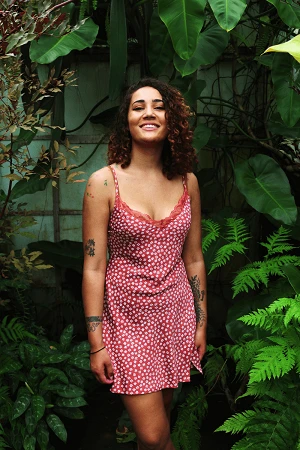
tattoo lover, plant hoarder, DIY addict and overall stoner grandma
Check out the FREE Gifts. Or latest free DIY eBooks from our best compilation.
Turn off Ad Block to reveal all the secrets. Once done, hit any button:
 |
 |
 |
 |